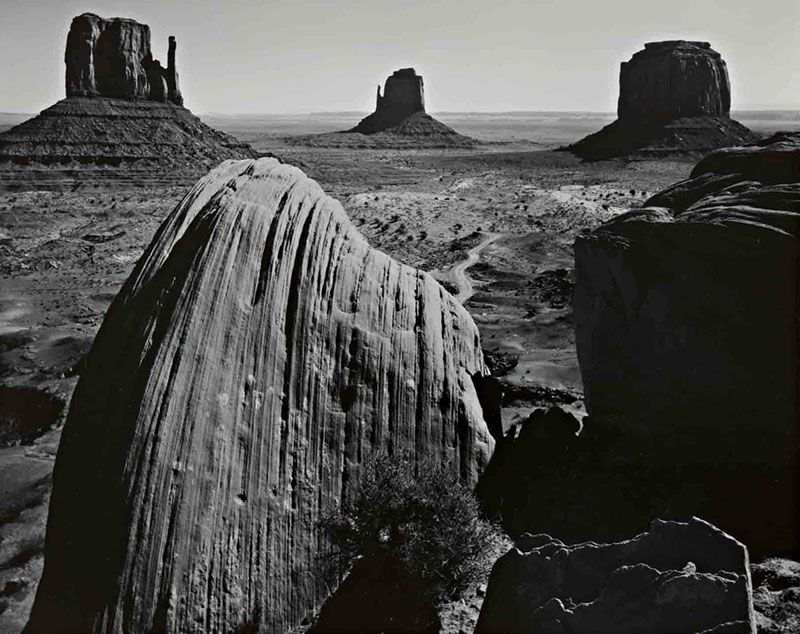Every Picture Is a Compromise
Lessons from the Also-rans
Most photography websites show the photographer's very best work. Wonderful. But that's not the full story of a creative life. If we want to learn, we'd better pay attention to the images that aren't "greatest hits" and see what lessons they have to offer. Every picture is a compromise — the sum of its parts, optical, technical, visual, emotional, and even cosmic – well, maybe not cosmic, but sometimes spiritual. Success on all fronts is rare. It's ok to learn from those that are not our best.
This is a series about my also-rans, some of which I've been able to improve at bit (i.e., "best effort"), none of which I would consider my best. With each there are lessons worth sharing, so I will.
Original digital captureWhat I saw that I liked:I like that Ansel Adams did this so well (left) in 1958. What I don't like in the picture:That so many contemporary photographers feel compelled to search for his tripod holes. I know it's fun, but "trophy hunting" is not the same thing as artmaking. What I learned:Gestalt psychology teaches a principle called "LOLO" — "Lock on, lock out." Once we are trained to see something (e.g., by a master photographer), it is very difficult to let go of that vision and find our own. That search is, IMHO, the core of the art life — finding your own vision. If you find it just too seductive to make images that replicate a master's vision, find a different subject that you can call your own. |


